Грег Иган - Distress
Здесь есть возможность читать онлайн «Грег Иган - Distress» весь текст электронной книги совершенно бесплатно (целиком полную версию без сокращений). В некоторых случаях можно слушать аудио, скачать через торрент в формате fb2 и присутствует краткое содержание. Жанр: Фантастика и фэнтези, на английском языке. Описание произведения, (предисловие) а так же отзывы посетителей доступны на портале библиотеки ЛибКат.
- Название:Distress
- Автор:
- Жанр:
- Год:неизвестен
- ISBN:нет данных
- Рейтинг книги:3 / 5. Голосов: 1
-
Избранное:Добавить в избранное
- Отзывы:
-
Ваша оценка:
- 60
- 1
- 2
- 3
- 4
- 5
Distress: краткое содержание, описание и аннотация
Предлагаем к чтению аннотацию, описание, краткое содержание или предисловие (зависит от того, что написал сам автор книги «Distress»). Если вы не нашли необходимую информацию о книге — напишите в комментариях, мы постараемся отыскать её.
Distress — читать онлайн бесплатно полную книгу (весь текст) целиком
Ниже представлен текст книги, разбитый по страницам. Система сохранения места последней прочитанной страницы, позволяет с удобством читать онлайн бесплатно книгу «Distress», без необходимости каждый раз заново искать на чём Вы остановились. Поставьте закладку, и сможете в любой момент перейти на страницу, на которой закончили чтение.
Интервал:
Закладка:
I knew that was paranoid: I could hardly have been the first journalist to set foot on the island. And the message was probably aimed at visitors from certain privately owned South American islands—"libertarian havens" established by self-styled "political refugees" from the US gun law reforms of the twenties—some of whom had tried to bring Stateless around to their special way of thinking on a number of occasions.
Nevertheless, I stood back for several minutes, hoping that someone in uniform would appear to put my mind at ease. My insurance company had declined to offer me any kind of cover once I was on Stateless—and when my bank found out I’d been here, they wouldn’t be pleased; they still owned most of the chips in my gut. Legally, the risk wasn’t mine to take.
No one turned up. I walked through. The frame of the scanner was loose, and it shuddered slightly—my body pinning a tiny portion of the magnetic flux, dragging it forward, then releasing it to rebound like elastic—but no microwave pulses seared my abdomen, and no alarms went off.
The gate led into a modern airport, not much different from many I’d seen in small European cities, with clean-lined architecture, and movable seating which groups of people had arranged in inward-facing rings. There were only three airline counters, and they all displayed much smaller versions of their logos than usual, as if not wishing to attract too much attention. Booking passage here, I’d found no flights advertised openly on the net; I’d had to post a specific query in order to obtain any information. The European Federation, India, and several African and Latin American countries only enforced the minimal boycott of selected high technology which the UN demanded; these airlines were operating entirely within the laws of their home nations. Still, irritating the Japanese, Korean, Chinese and US governments— not to mention the biotech multinationals—would always carry a risk. Committing the offense discreetly wouldn’t conceal anything, but no doubt it acted as a gesture of obeisance, and lessened the perceived need for examples to be made of the collaborators.
I collected my suitcase and stood by the baggage roundabout, trying to get my bearings. I watched my fellow passengers drift away, some greeted by friends, some going on alone. Most spoke in English or French; there was no official language here, but almost two-thirds of the population had migrated from other Pacific islands. Choosing to live on Stateless might always be a political decision in the end—and some Greenhouse refugees apparently preferred to spend years in Chinese detention camps instead, in the hope of eventually being accepted into that entrepreneurial dreamland—but after seeing your home washed into the ocean, I could imagine that a self-repairing (and currently increasing) landmass might hold a special attraction. Stateless represented a reversal of fortune: sunlight and biotechnology playing the whole disaster movie backward. Better than raging at the storm. Fiji and Samoa were finally growing new islands of their own, but they weren’t yet habitable—and both governments were paying several billion dollars for the privilege, in license fees and consultants' charges. They’d carry the debt into the twenty-second century.
In theory, a patent lasted only seventeen years—but biotech companies had perfected the strategy of re-applying for the same coverage from a different angle when the expiration date loomed: first for the DNA sequence of a gene, and all its applications… then for the corresponding amino acid sequence… then for the shape and functionality (irrespective of precise chemical makeup) of the fully assembled protein. I couldn’t bring myself to simply shrug off the theft of knowledge as a victimless crime—I’d always been swayed by the argument that no one would waste money on R&D if engineered lifeforms couldn’t be patented—but there was something insane about the fact that the most powerful tools against famine, the most powerful tools against environmental damage, the most powerful tools against poverty … were all priced beyond the reach of everyone who needed them the most.
As I began to cross toward the exit, I saw Janet Walsh heading in the same direction, and I hung back. She was walking with a group of half a dozen men and women—but one man walked a few meters outside the entourage, with a practiced smooth gait and a steady gaze directed straight at Walsh. I recognized the technique at once, and the practitioner a moment later: David Connolly, a photographer with Planet Noise. Walsh needed a second pair of eyes, of course—she would hardly have let them put all that nasty dehumanizing technology inside her own body… and, worse, her own POV would have left her out of every shot. Not much point employing a celebrity journalist if she wasn’t onscreen.
I followed at a discreet distance. A group of forty or fifty supporters were standing outside in the warm night air, holding up luminescent banners—more telegenic in the relative darkness than they would have been inside—which switched in synch between HUMBLE SCIENCE!, WELCOME JANET! and SAY NO TO TOE! They cheered in unison as Walsh came through the doors. She broke away from her halo of companions to shake hands and receive kisses; Connolly stood back to capture it all.
Walsh made a short speech, wisps of gray hair blowing in the breeze. I couldn’t fault her skills with camera or crowd: she had the knack of appearing dignified and authoritative, without seeming stern or aloof. And I had to admire her stamina: she displayed more energy after the long flight than I could have summoned if my life had been in danger.
"I want to thank all of you for coming here to greet me; I really am touched by your generosity. And I want to thank you for undertaking the long, arduous journey to this island, to lend your voices to our small song of protest against the forces of scientific arrogance. There are people gathering here who believe they can crush every last source of human dignity, every last wellspring of spiritual nourishment, every last precious, sustaining mystery, under the weight of their intellectual progress'—grind us all down into one equation, and write it on a T-shirt like a cheap slogan. People who believe they can take all the wonders of nature and the secrets of the heart and say: 'This is it. This is all there is. Well, we’re here to tell them—"
The small crowd roared, "NO!"
Beside me, someone laughed quietly. "But if they can’t take away your precious dignity, Janet, why make such a fuss?"
I turned. The speaker was a… twentyish? asex? Ve tipped vis head and smiled, teeth flashing white against deep black skin, eyes as dark as Gina’s, high cheekbones which had to be a woman’s—except, of course, they didn’t. Ve was dressed in black jeans and a loose black T-shirt; points of light appeared on the fabric sparsely, at random, as if it was meant to be displaying some kind of image, but the data feed had been cut.
Ve said, "What a windbag. You know she used to work for D-R-D? You’d think she’d have snappier rhetoric, with credentials like that." Cre-den-tials was pronounced with an ironic (Jamaican?) drawl; D-R-D was Dayton-Rice-Daley, the Anglophone world’s largest advertising firm. "You’re Andrew Worth."
"Yes. How—?"
"Come to film Violet Mosala."
"That’s right. Do you… work with her?" Ve looked almost too young even to be a doctoral student—but then, Mosala had completed her own PhD at twenty.
Ve shook vis head. "I’ve never met her."
I still couldn’t pin down vis accent, unless the word I was looking for was mid-Atlantic: halfway between Kingston and Luanda. I put down my suitcase and held out a hand. Ve shook it firmly. "I’m Akili Kuwale."
Читать дальшеИнтервал:
Закладка:
Похожие книги на «Distress»
Представляем Вашему вниманию похожие книги на «Distress» списком для выбора. Мы отобрали схожую по названию и смыслу литературу в надежде предоставить читателям больше вариантов отыскать новые, интересные, ещё непрочитанные произведения.
Обсуждение, отзывы о книге «Distress» и просто собственные мнения читателей. Оставьте ваши комментарии, напишите, что Вы думаете о произведении, его смысле или главных героях. Укажите что конкретно понравилось, а что нет, и почему Вы так считаете.
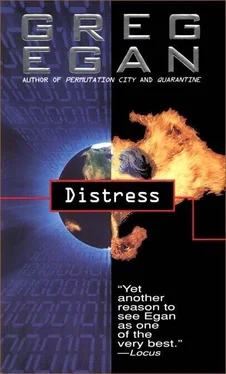

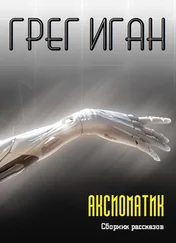

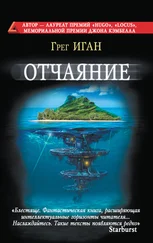
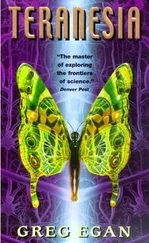
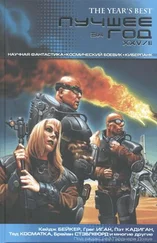

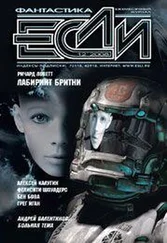
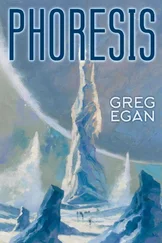
![Грег Иган - Рассказы [компиляция]](/books/419837/greg-igan-rasskazy-kompilyaciya-thumb.webp)
